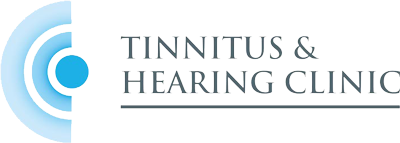Lawyer Tom Johnson can pinpoint the onset of his tinnitus to a steep descent on a flight from back from Switzerland in September 1995. Tom wasted no time in seeing a GP about the sharp sound he was hearing in his ears, and then being referred on to an ENT specialist.
“He gave his advice: basically you can’t do much about it.”
However, Tom noticed that the stress of his job at the time made his tinnitus worse. It would be more noticeable during the week, when he was physically tired or mentally stressed, than it was at weekends.
He continued to visit different ENT and tinnitus specialists in an attempt to find something that would relieve his condition. One ENT specialist prescribed clonazepam, a drug used to treat epilepsy, to calm down the activity in the brain. He also saw another team of audiology specialists, who suggested he should try and remove as much stress from his life as possible: by changing jobs, trying massage or acupuncture and similar strategies. This approach was part of a programme of Tinnitus Retraining Therapy (TRT).
“It’s easier said than done of course… sometimes being told to relax makes you more on edge.”
Tinnitus Retraining Therapy links the cause of the tinnitus to the brain rather than any physical damage to the ears. Several years on, there had been some improvement in Tom’s tinnitus, but he was still looking for a way to gain further relief when he heard about the new Acoustic CR® Neuromodulation being offered at The Tinnitus Clinic.
At the Clinic, Tom was assessed by Principal Scientific Audiologist, Mark Williams. Mark undertook a thorough audiological examination, and found that Tom’s tinnitus was at a very high frequency: around 11,000 hertz. Mark also identified that there was some physical damage and hearing loss occurring at this high frequency, but that the tinnitus tone was outside the recommended range for Acoustic CR® Neuromodulation.
“So thought I would have to tough this out… but Mark said ‘no there are other possibilities, we have to think differently'”.
Based on his experience with pitch matching and Acoustic CR® Neuromodulation, Mark was able to accurately apply an acoustic prescription to Tom’s tinnitus pitch using customised hearing devices.
“The idea is to narrow the gap between the tinnitus and the outside world so there is less of a contrast – and it works.”
Tom wears his devices 5-6 hours every day, finding them a lot more discreet than other devices he has worn in the past. He meets Mark every three or four weeks at the Clinic to refine the acoustic prescription.
Over the first six to eight weeks of wearing the devices, Tom detected a significant improvement in his tinnitus symptoms, both when he wore the devices and when he removed them. This was particularly noticeable during a recent holiday in Greece.
“It was the first time in seventeen years that I have been able to relax fully knowing I can just plug these things in. The tinnitus doesn’t disappear completely, but it’s greatly reduced and I can count on it working almost always. I did notice that when I wasn’t wearing the devices my tinnitus had also abated quite a lot.”
One of the reasons Tom chose The Tinnitus Clinic and the Tinnitus Desensitisation Therapy™ treatment is that it has a scientific basis. Mark Williams and The Tinnitus Clinic team are all experienced audiologists, who are committed to providing the best evidence-based tinnitus treatments available.
“It was the first time in seventeen years that I have been able to relax fully knowing I can just plug these things in.”


